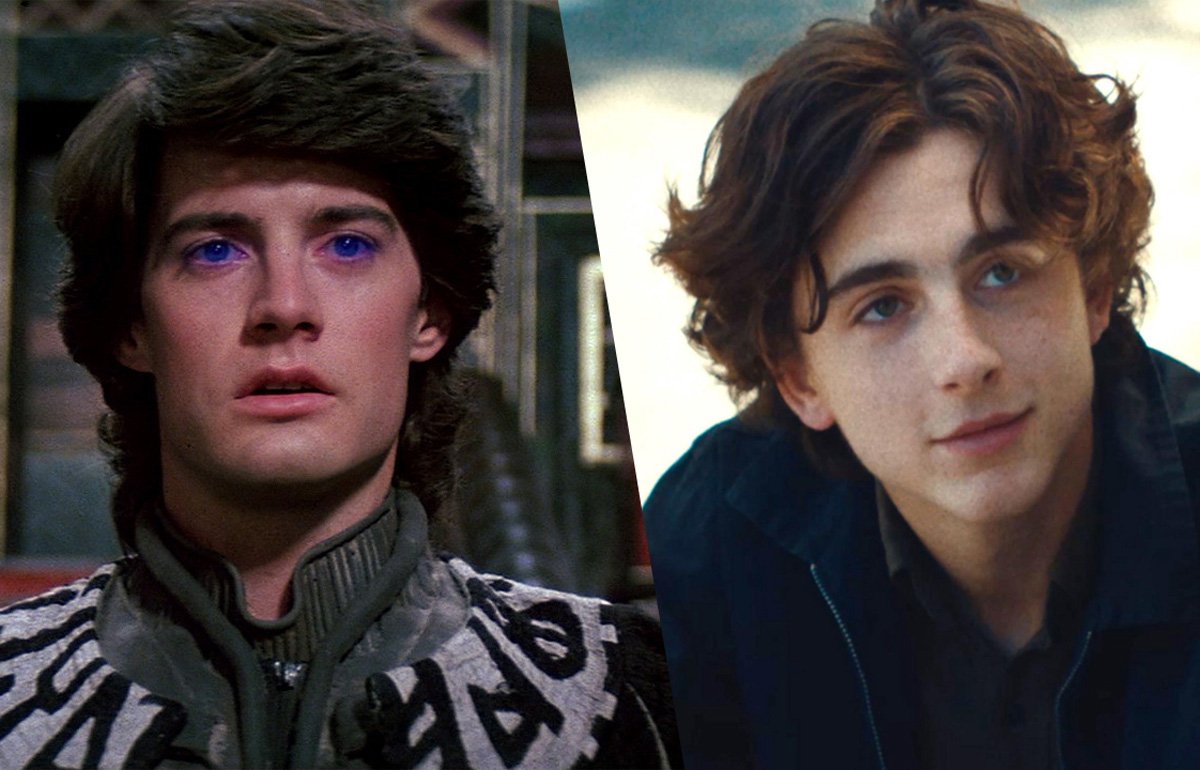For miles stretching as far as the eye can see, oceans of sand slumber beneath two moons. In the distance, a pair of figures, a mother and son, cross this vast chasm of dunes on their quest to find those blue-eyed devils they call the Fremen. Yet as Paul Atreides and Lady Jessica move through the harsh landscape, they realize a creature—a monstrous Sandworm the size of a skyscraper—is headed straight for them.
Am I describing Denis Villeneuve’s new adaptation of Frank Herbert’s literary masterpiece, Dune, or David Lynch’s previous 1984 stab at the same material? Honestly, in moments like these, they’re surprisingly similar: intended epics made by filmmakers committed to doing justice to what many believe is the finest science fiction novel ever written. And yet, more often than not, the differences are as colossal as the desert of Arrakis itself.
Largely hated and dismissed in its time by critics and general audiences—even its director isn’t too fond of the finished product, taking his name off extended television cuts—Lynch’s Dune has developed a cult classic status in recent years. Indeed, you’ve likely already seen spicy hot takes on social media where folks declare the once reviled adaptation produced by Dino De Laurentiis to be superior to the modern Hollywood spectacle helmed by the Oscar-winning auteur behind Arrival and Blade Runner 2049.
Well, we’re not here to tell you which you should prefer (although we have a clear preference). Rather the two films offer a fascinating case study in how the different choices made by different filmmakers, even while working toward the same goal and with the same source material, can produce vastly different results. Below are the variances, great and small, that when added together create viscerally diverging interpretations of a tale about a boy, a desert, and the spice melange….
How the Dune Saga is Framed
The biggest difference between the two films is that Villeneuve’s movie is not an adaptation of the whole 1965 novel. In fact, it only covers about half the book, ending at a midway point where Paul Atreides (Timothée Chalamet) and his mother, the Lady Jessica (Rebecca Ferguson), have been cautiously accepted by a Fremen leader after Paul slew one of their men in holy combat.
All the elements of Paul being fully embraced by the Fremen, leading them into a coordinated uprising against House Harkonnen, his fateful meeting with the Padishah Emperor, and even earning the name Muad’Dib have been left for a second movie. As such, we won’t be comparing the elements left to a second film beyond this point. However, the choice by Villeneuve to cut Dune into two movies already appears to be a prudent one by simple comparison with Lynch’s movie.
